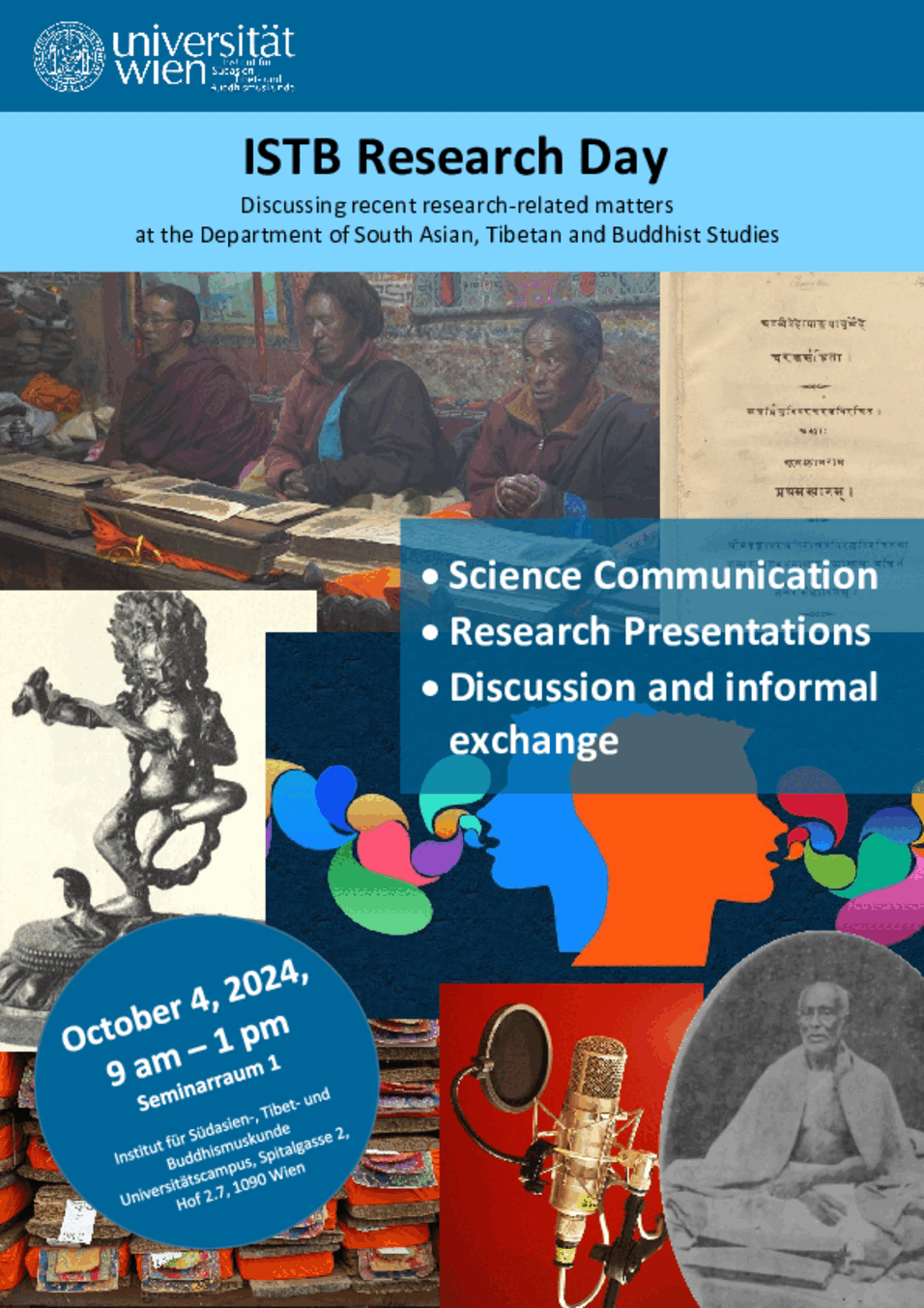Science Communication • Research Presentations • Discussion and informal exchange
Programme
9:00 Welcome
Science Communication
9:10–10:00 Peter Iwaniewicz: Science Communication: An Introduction
Dr. Peter Iwaniewicz is a biologist and leads the Department of Sustainable Development at the Ministry of Climate Protection. He teaches Science Communication at the University of Vienna, while also working as a science journalist.
10:00–10:20 Coffee
10:20–10:50 Markus Viehbeck: Producing an Ethnographic Documentary – As a Philologist
Much of the work in the field of Kanjur Studies has traditionally been driven by philological interests. However, there is also a dimension of social concern and religious practice that is responsible for the production of Tibetan Buddhist canonical manuscripts in the first place. During recent fieldwork we have therefore decided to document some of these social aspects, not only to address a gap in the study of the Tibetan canon, but also to use this as an opportunity to communicate our research interests to a wider audience.
10:50–11:20 Christopher Jones: Early Reflections on Interviewing / “Podcasting” by the Department
I have begun to make use of the faculty’s MediaLab to record short interviews with colleagues. The project is in very early stages, but I offer some reflections on the equipment and process, along with thoughts about the aspiration to turn these short interviews into podcast episodes.
11:20–11:40 Coffee
Research presentations
11:40–12:20 Cristina Pecchia & Sudipta Munsi: Ayurveda and Philology: Gangadhar Ray Kaviraj and His Legacy
Ayurveda, one of the systems of medicine of South Asia, has a history of more than two-thousand years. Its existence in the vast South Asian region has displayed a striking degree of continuity, which also extends to the significance attached to the early Sanskrit foundational treatises of Ayurveda. The research project “Ayurveda and Philology,” funded by the Austrian Science Fund (FWF), aims at gaining a deeper understanding of the developments of the textual tradition and theoretical framework of Ayurveda during the colonial period, which led to the present configuration of this medical tradition. The first printed edition of the Carakasaṃhitā, one of the foundational works of Ayurveda, is the focal point of attention and, with it, Gangadhar Ray Kaviraj (1798–1885), editor of the text as well as author of a lengthy commentary on it, the Jalpakalpataru, and of several other Ayurvedic treatises. The project investigates the background and modalities of Gangadhar’s philological activity, as well as the interplay between different actors of the transmission and circulation of the Carakasaṃhitā, which also entails engaging with aspects of the colonial history of South Asia.
12:20–13:00 Julian Schott: All the Dharma in a Single Breath: The Fierce Female Force of Caṇḍālī
The yogic practice called caṇḍālī, in Tibetan gtum mo, often rendered into English as "inner heat" (a translation that quite unnecessarily narrows down the many other implications of this term) can be seen as a practice that, already by its very name, alludes to the progressive spiritual mindset that I see as an important feature of the developmental phase of the yoga- and mahāyoga traditions. But more than that, in this short presentation I will briefly outline how the term presents a path-model that connects general mahāyāna doctrine and well-known pan-Asian exercises with vajrayāna philosophy and soteriology thus creating a complex mnemonic framework that triggers a holistic mind-body experience.

